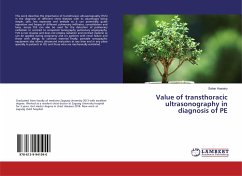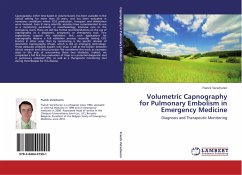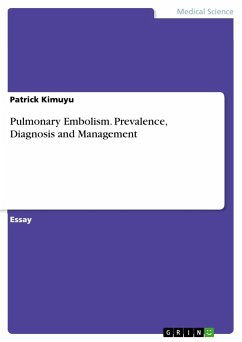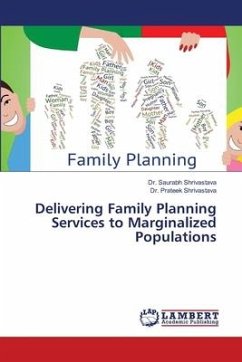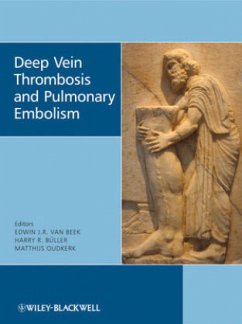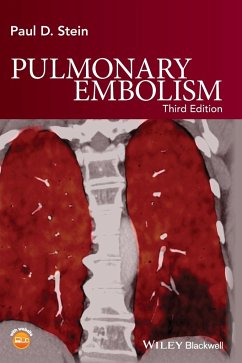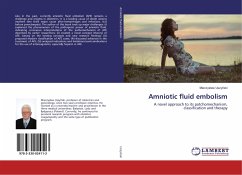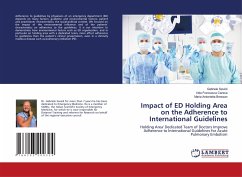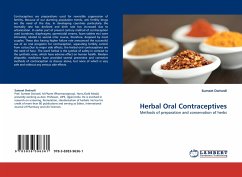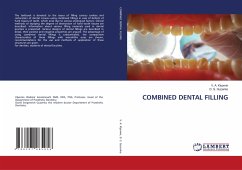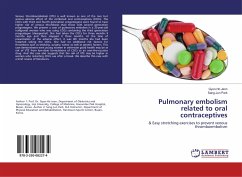
Pulmonary embolism related to oral contraceptives
& Easy stretching exercises to prevent venous thromboembolism
Versandkostenfrei!
Versandfertig in 6-10 Tagen
24,99 €
inkl. MwSt.

PAYBACK Punkte
12 °P sammeln!
Venous thromboembolism (VTE) is well known as one of the rare but serious adverse effect of the combined oral contraceptives (COCs). The COCs with third and fourth generation progestogens were found to have higher risk of venous thrombosis than those with second generation progestogens. We present a case of pulmonary embolism in a 23-year-old nulligravid woman who was using COCs containing the third generation progestogen (desogestrel). She had taken the COCs for three months 9 months ago and then stopped it three months. At the time of presentation of the adverse effect, it was 4th months she...
Venous thromboembolism (VTE) is well known as one of the rare but serious adverse effect of the combined oral contraceptives (COCs). The COCs with third and fourth generation progestogens were found to have higher risk of venous thrombosis than those with second generation progestogens. We present a case of pulmonary embolism in a 23-year-old nulligravid woman who was using COCs containing the third generation progestogen (desogestrel). She had taken the COCs for three months 9 months ago and then stopped it three months. At the time of presentation of the adverse effect, it was 4th months she had been restarted taking the COCs. She had no additional risk factors for thrombosis such as smoking, surgery, tumor as well as genetic factors. This case demonstrates even young women in otherwise good health may be at risk of VTE from low-dose formulations of COCs as an over-the-counter drug. And this case also suggests that the risk of VTE may be higher in women who restarting COCs use after a break. We describe this case with a brief review of literatures.



